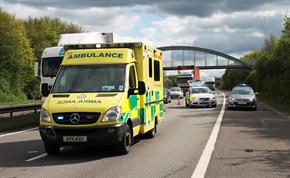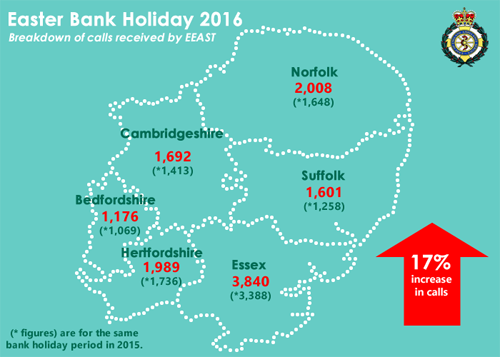
Staff and volunteers have been thanked for their hard work after a 17% increase in demand over the Easter weekend.
As thousands in the eastern region enjoyed a four-day weekend, more than 12,300 emergency calls were made to our ambulance service, compared to 10,500 calls last Easter.
However, there was only a 1.2% increase in the number of incidents that we sent a response to compared with Easter 2015 - thanks to having more clinicians in control rooms.
Robert Morton, Chief Executive, said: “I’d like to thank all of my colleagues for their hard work during another busy bank holiday weekend and all the community first responders who dedicated their spare time to help patients during the Easter break.
“We continue to experience a rise in demand. However, the measures we have put in place such as having more clinicians in control rooms, including GPs, means that we can give advice over the phone and ensure that our ambulance crews and clinicians on the road are focused more on seeing patients with life-threatening or serious conditions.”
County breakdown of calls this Easter (compared with 2015):

The Trust’s 'It's your call' campaign helps inform people and educate others on how 999 calls are handled and prioritised so that in the event of a medical problem, they feel better equipped to know what to do. For more information, and to see how you can support us, visit our website!
Published on 30th March, 2016